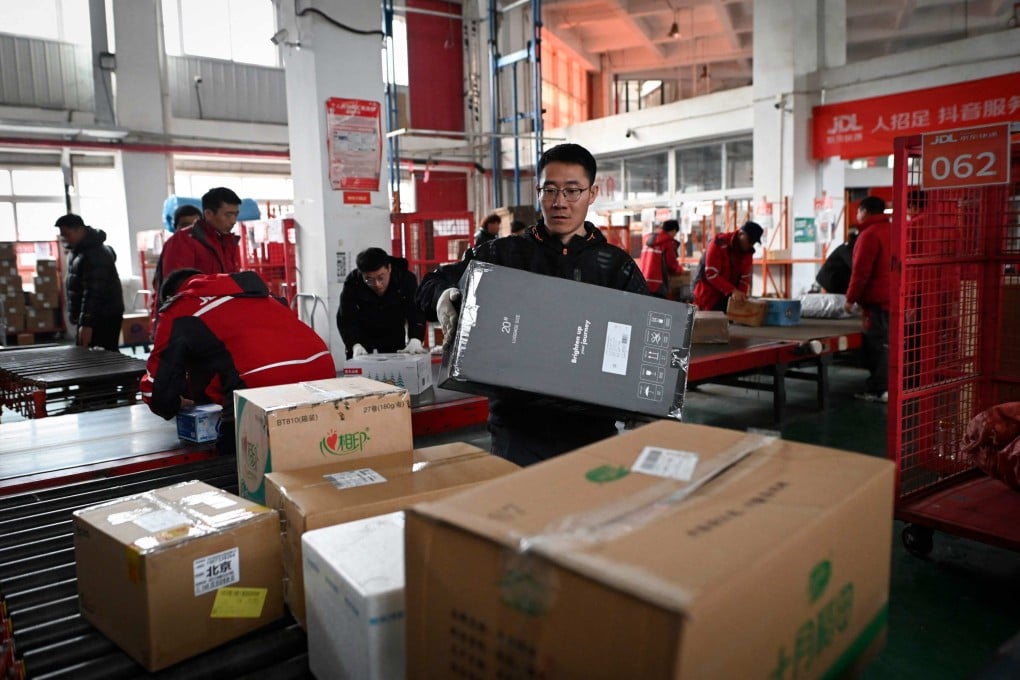Hong Kong stocks jump on strong JD.com results, with Tencent, Alibaba on deck
‘The tariff episode is expected to have a limited impact on corporate earnings,’ Bocom International analyst says

Hong Kong stocks rose to nearly a two-month high on Wednesday, as JD.com reported the fastest earnings growth in three years while investors were gearing up for results from bellwethers such as Tencent Holdings and Alibaba Group Holding.
The Hang Seng Index climbed 2.3 per cent to 23,640.65 at the close. The Hang Seng Tech Index rose 2.1 per cent.
On the mainland, the CSI 300 Index added 1.2 per cent and the Shanghai Composite Index advanced 0.9 per cent.
E-commerce giant JD.com jumped 3.4 per cent to HK$141.60 after posting a 16 per cent year-on-year increase in sales in the first quarter. Tencent gained 3 per cent to HK$521 before its earnings release later on Wednesday. Alibaba, which is due to report results on Thursday, rallied 3.4 per cent to HK$130.40.
“The tariff episode is expected to have a limited impact on corporate earnings, and results from most of the sectors are expected to be stable,” said Evan Li, an analyst at Bocom International Holdings in Hong Kong. “Hong Kong stocks now have a slew of tailwinds after improvement in both the internal and external environments. The tariff deal reduces the risks of global trade and a global recession, while China is pushing ahead with policies to boost domestic demand by lowering interest rates and stimulating consumption.”
A 90-day truce in the trade war, agreed to by China and the US over the weekend, has boosted the appetite for risk assets globally, removing a key hindrance to stocks and allowing investors to turn their attention to corporate earnings and economic fundamentals. The Hang Seng Index has rebounded 19 per cent from an April low after recovering all of the 13 per cent loss it incurred on US President Donald Trump’s “Liberation Day” on April 2.